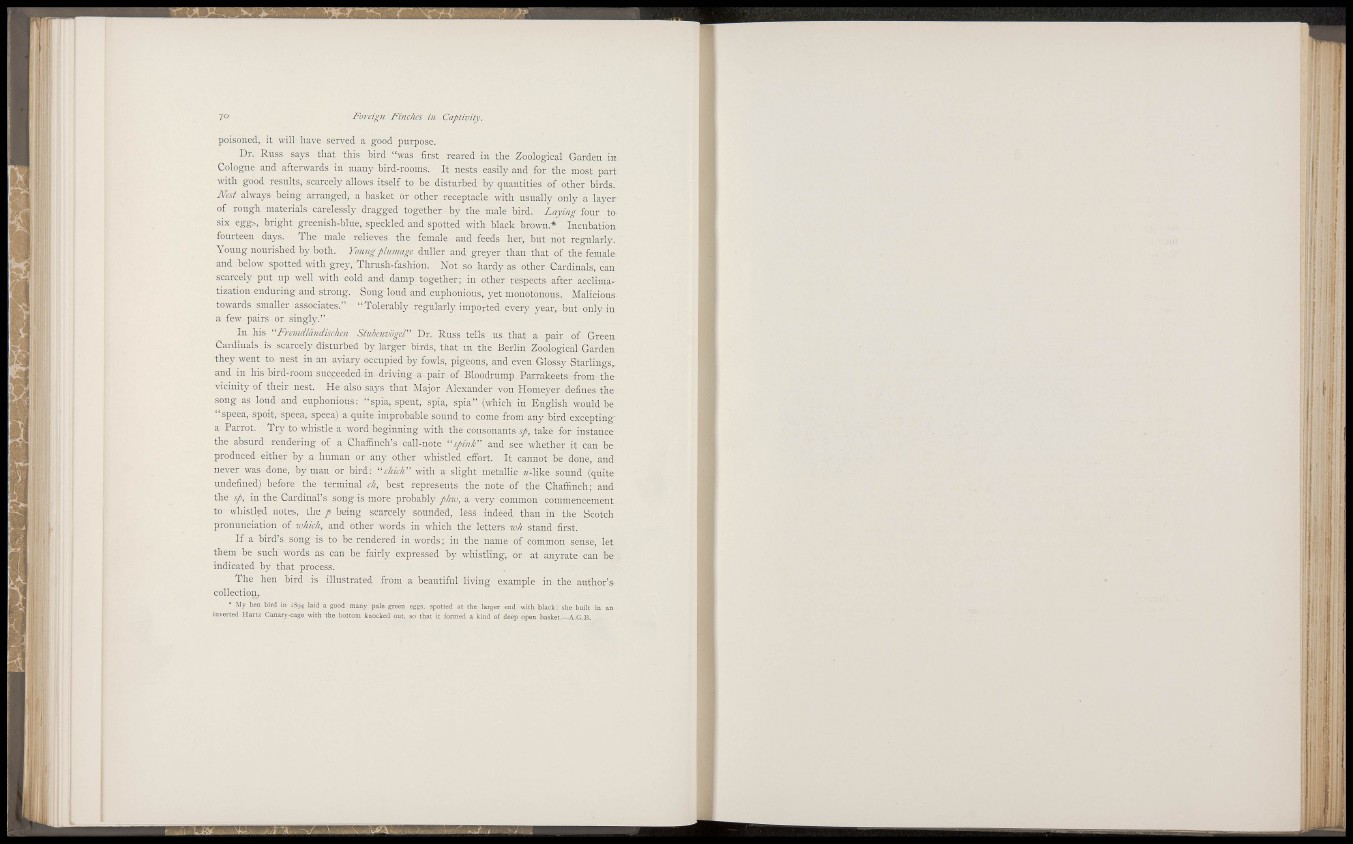
Foreign Finches in Captivity.
poisoned, it will have served a good purpose.
Dr. Russ says that this bird "was first reared in the Zoological Garden iu
Cologne and afterwards in nian3' bird-rooms. It nests easily and for the most part
with good results, scarcely allows itself to be disturbed by quantities of other birds.
Nest always being arranged, a basket or other receptacle with usually only a layer
of rough materials carelessly dragged together by the male bird. Laying four to
six egg;,, bright greenish-blue, speckled and spotted with black bro^vn.* Incubation
fourteen days. The male relieves the female and feeds her, but not regularly.
Young nourished by both. Young plumage duller and greyer than that of the female
and belo^v- spotted with grey, Thrush-fashion. Not so hardy as other Cardinals, can
scarcely put up well with cold and damp together; in other respects after acclimatization
enduring and strong. Song loud and euphonious, yet monotonous. Malicioustowards
smaller associates." "Tolerably regularly imported every year, but only in
a few pairs or singty."
In his ''Frcmdliindischcn StnbcnvogeP' Dr. Russ tells us that a pair of Green
Cardinals is scarcely disturbed b_y larger birds, that iu the Berlin Zoological Garden
they went to nest in an a^-iary occupied by fowls, pigeons, and even Glossy Starlings,
and in his bird-room succeeded in driving a pair of Bloodrump Parrakeets from the
vicinity of their nest. He also says that Major Alexander von Homeyer defines the
song as loud and euphonious: "spia, spent, spia, spia" (which in English would be
"speea, spoit, speea, speea) a quite improbable sound to come from any bird exceptinga
Parrot. Try to whistle a word beginning with the consonants sp, take for instance
the absurd rendering of a Chaffinch's call-note "spiuk" and see whether it can be
produced either b_v a human or any other ^vhistled effort. It cannot be done, and
never was done, by man or bird: "f/z/f//" with a slight metallic 7/-like sound (quite
undefined) before the terminal ch, best represents the note of the Chaffinch; and
the 5/, in the Cardinal's song is more probably plno, a very common commencement
to ^vhistled notes, the / being scarcel)- sounded, less indeed than in the Scotch
pronunciation of lohicli, and other words in which the letters -wh stand first.
If a bird's song is to be rendered in words; in the name of common sense, let
them be such -words as can be fairly expressed by whistling, or at anyrate can be
indicated by that process.
The hen bird is illustrated from a beautiful living example in the author'scollection,
My hen bird in 1S94 laid a good many pale green eggs, spotted at the larger end with black: she built in an
inverted Hartz Canary-cage with the bottom knocked out, so that it formed a kind of deep open basket,—A.G.B.
t':
-•A '
ill